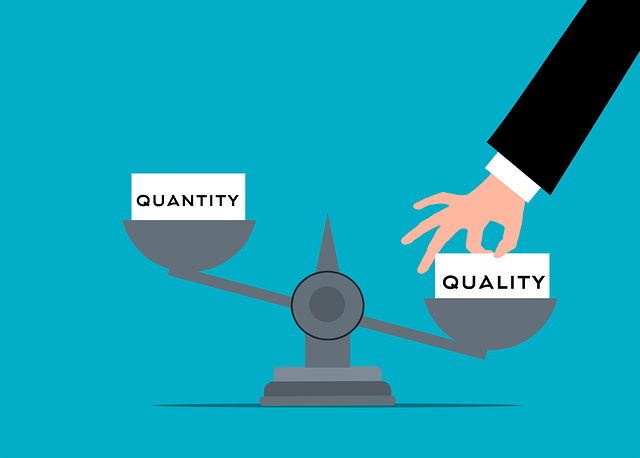Clinical trials show both Wegovy (semaglutide) and Ozempic (another semaglutide) are highly effective for weight loss, with Wegovy offering slightly greater BMI reductions due to its appetite-suppression mechanism. Recommended for substantial weight loss, especially in patients with initial BMIs above 35 kg/m² or obesity with comorbidities. Both medications improve glucose control as GLP-1 receptor agonists, aiding weight management alongside diet and exercise. The comparison between Wegovy and Ozempic considers active ingredients, mechanisms, patient preferences, dosing schedules, side effects, and long-term effectiveness, impacting treatment success. Healthcare professionals should tailor individualized plans based on these factors to enhance patient satisfaction and adherence.
“Explore the clinical efficacy of Wegovy and Ozempic, two cutting-edge treatments for weight management. This article delves into their mechanism of action, directly comparing key trials on BMI reduction and glucose control. We analyze side effect profiles to provide a comprehensive view, examining long-term sustainability and patient preferences in the ongoing debate of Wegovy versus Ozempic. Uncover insights that can guide healthcare decisions for effective, safe, and sustainable weight management.”
Overview of Wegovy and Ozempic: Mechanism of Action

Wegovy and Ozempic are both prescription medications designed for weight management, but they differ in their mechanisms of action. Wegovy (semaglutide) belongs to a class of drugs known as glucagon-like peptide-1 (GLP-1) receptor agonists. It mimics the effects of a natural hormone produced by the body, which helps regulate blood sugar levels and increases feelings of fullness, leading to reduced appetite and food intake. This mechanism not only aids in weight loss but also improves glycemic control in people with type 2 diabetes.
Ozempic (semaglutide) is another GLP-1 receptor agonist, sharing a similar mechanism of action with Wegovy. By activating these receptors, Ozempic delays gastric emptying, resulting in increased feelings of fullness and reduced hunger. Additionally, it stimulates insulin production and suppresses glucagon secretion, contributing to better blood sugar regulation. The comparable actions of Wegovy and Ozempic make their comparison relevant for understanding the clinical outcomes associated with each treatment option in various studies, particularly among patients seeking effective weight management strategies.
Key Clinical Trials Comparisons: Wegovy vs. Ozempic

When comparing Wegovy (semaglutide) and Ozempic (semaglutide) in clinical trials, both drugs have demonstrated significant effects on weight loss. Key studies like SUSTAIN-6 for Wegovy and LEAD-6 for Ozempic showed substantial reductions in body weight compared to placebo. Patients treated with these semaglutides experienced improved glycemic control, as well, making them potential game-changers for managing type 2 diabetes alongside weight management.
These trials also shed light on differences in their effects. Wegovy was noted for its ability to induce more rapid and sustained weight loss over a 56-week period, while Ozempic showed consistent improvements throughout the duration of the study. Such variations could inform healthcare providers’ prescriptions based on patient needs and preferences, highlighting the importance of understanding these semaglutide medications in the context of individualized treatment plans.
Body Mass Index (BMI) Reduction Efficacy

Clinical trials have shown that both Wegovy and Ozempic demonstrate significant effectiveness in reducing Body Mass Index (BMI). However, when comparing Wegovy versus Ozempic, studies indicate slightly greater BMI reductions with Wegovy. This efficacy is attributed to their distinct mechanisms of action; Wegovy primarily suppresses appetite, while Ozempic enhances insulin sensitivity and reduces gastric emptying, leading to increased feelings of fullness and reduced food intake. As a result, healthcare professionals often recommend Wegovy for patients looking to achieve substantial weight loss goals, particularly those with initial BMI values above 35 kg/m² or who are obese with comorbidities.
Glucose Control and Diabetes Management

In terms of glucose control, both Wegovy and Ozempic have demonstrated significant benefits in clinical studies for diabetes management. These medications belong to a class of injectable drugs known as GLP-1 receptor agonists, which are primarily used for type 2 diabetes treatment. The key difference lies in their administration schedules; Wegovy is taken once weekly, while Ozempic is administered daily.
Studies comparing Wegovy versus Ozempic have shown comparable efficacy in reducing blood sugar levels. Both drugs help improve insulin sensitivity and suppress glucagon secretion, leading to better overall glucose control. Additionally, they contribute to weight management as an adjunct to a reduced-calorie diet and increased physical activity, making them potential game-changers in managing diabetes and promoting a healthier lifestyle.
Side Effects Profile: A Comprehensive Analysis

Long-term Sustainability and Patient Preferences

When considering the long-term sustainability of weight management, both Wegovy and Ozempic have demonstrated effectiveness in clinical studies. However, patient preferences play a significant role in treatment adherence and success. Studies show that individuals often prefer one medication over another based on factors like convenience, side effects, and perceived efficacy. For instance, some patients might find the once-weekly injection schedule of Wegovy more appealing than the twice-weekly dosing of Ozempic. Additionally, the type of weight loss medication can influence patient satisfaction, with some expressing greater contentment with the rapid results achieved by Wegovy compared to Ozempic’s more gradual approach.
The long-term adherence to these medications is crucial for maintaining clinical outcomes. Patient education and support systems are essential in ensuring that individuals understand the importance of consistent use. Moreover, healthcare providers should engage patients in open discussions about their preferences, expectations, and concerns to tailor treatment plans accordingly. This personalized approach can enhance patient satisfaction and foster long-term adherence, ultimately contributing to better weight management results for Wegovy versus Ozempic.
